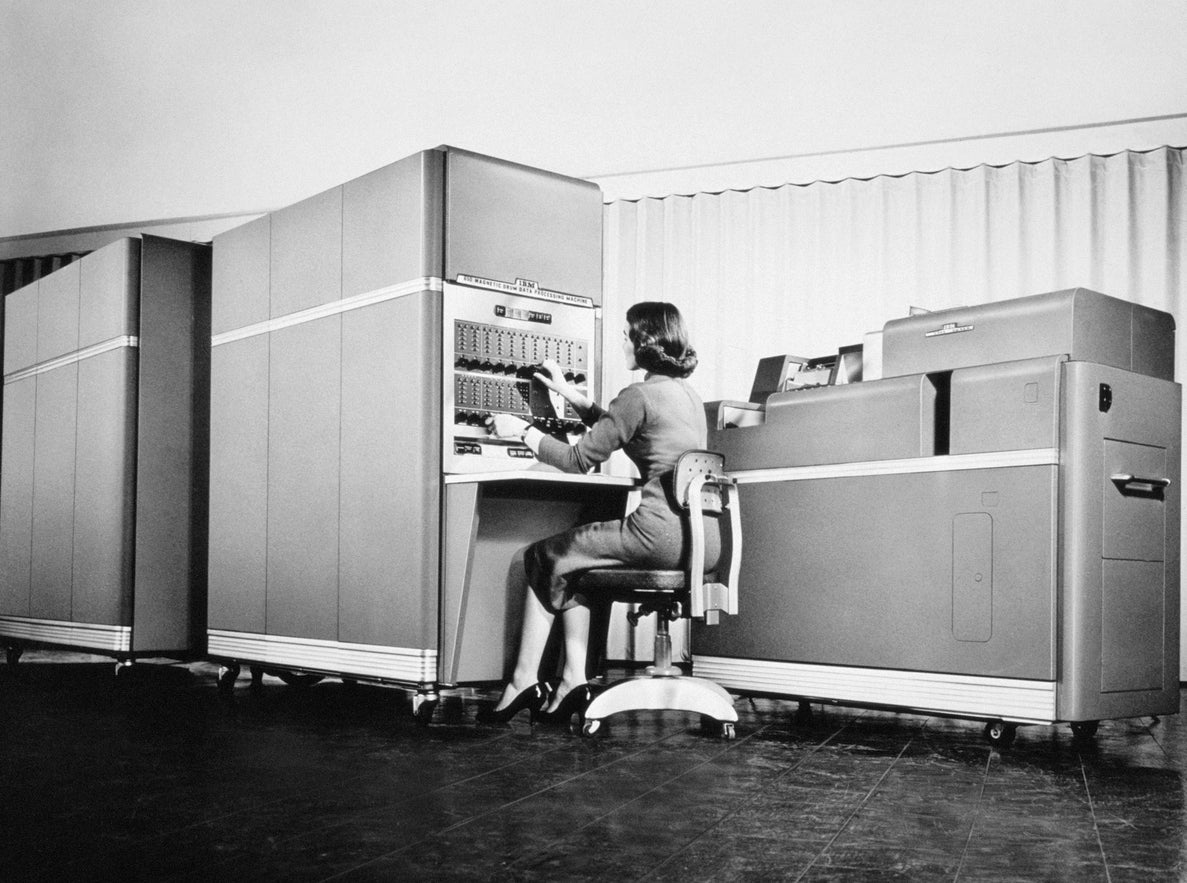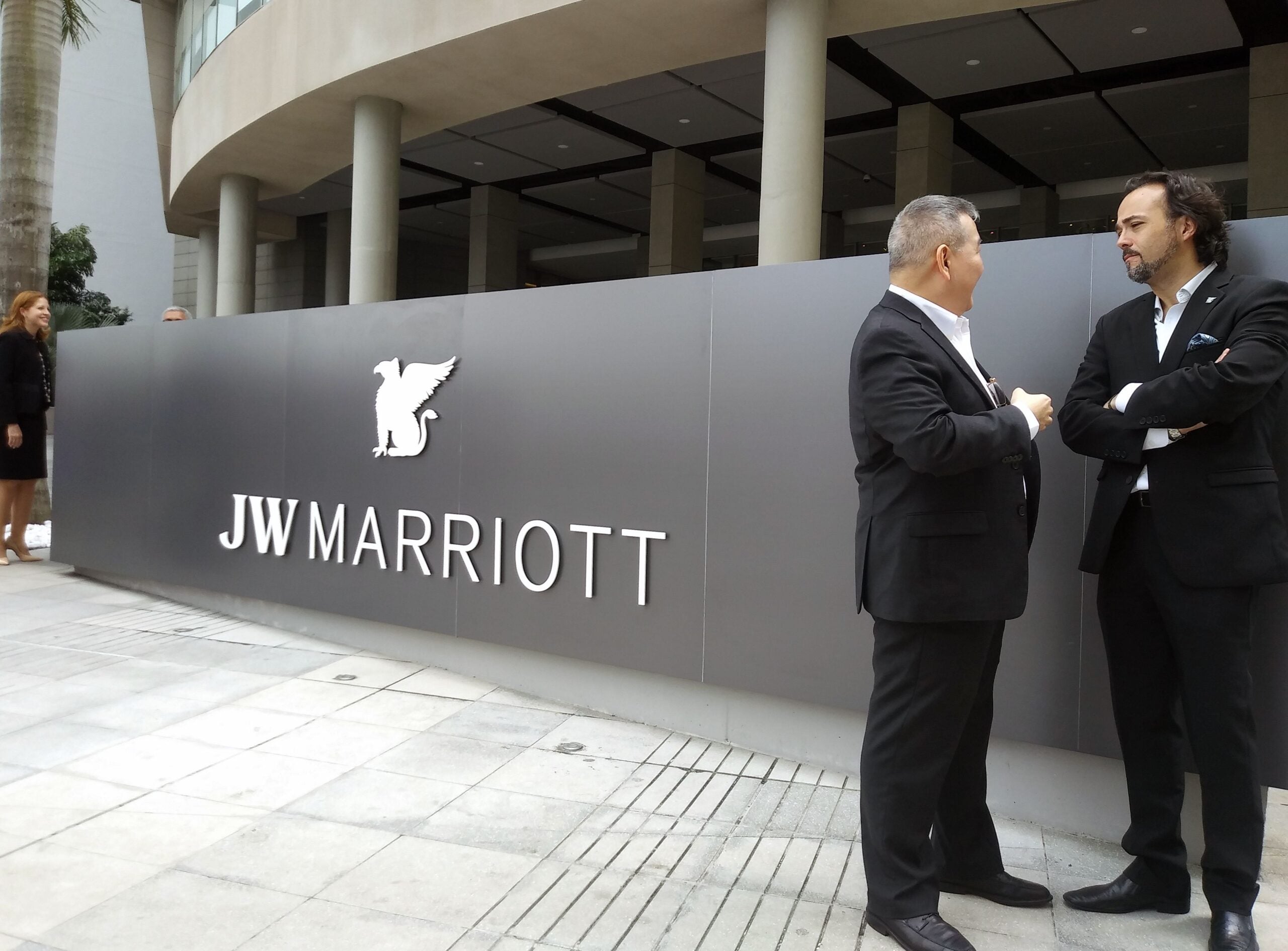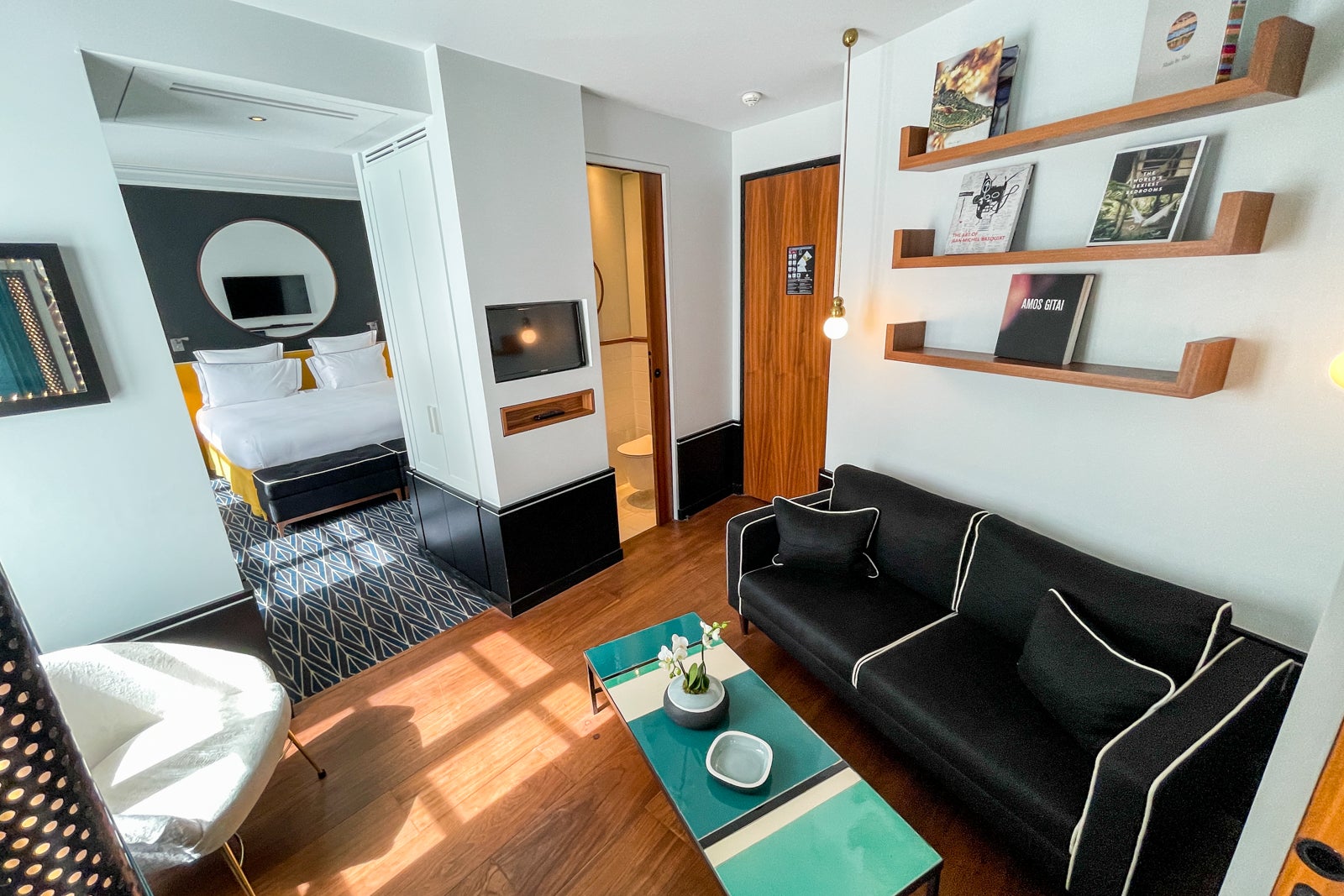Online travel agencies, otherwise known as OTAs, are everywhere in the travel industry.
Even if you aren’t familiar with the term OTA, chances are you’ve booked a reservation with one. This includes sites such as Expedia, Kayak and Hotels.com. They are remarkably easy to use, can have great rates and let you see multiple flight, hotel and rental car options in one place.
However, booking a flight with an OTA differs from reserving a hotel room with an OTA in one key way: You typically earn points or miles for flights booked via these third-party sites, but the same isn’t true when you book hotel stays in this manner.
Many TPG readers have found this out the hard way. They booked a Marriott, Hilton or another chain hotel through an OTA, only to arrive at the property unable to earn points or use their hard-earned elite status benefits.
This has led many to wonder: Why don’t you earn hotel points when booking through an OTA?
To answer this question, I spoke with Henry Harteveldt, a travel industry analyst and president of Atmosphere Research Group (a strategic market research and advisory firm), to learn the ins and outs of OTAs.
He walked me through the history of OTAs and the current arrangement they have with hotels. So, let’s take a closer look at how OTAs came to be, their arrangement with hotels and why you don’t earn points when you book a hotel stay through them.
Sign up for our daily newsletter for more TPG news delivered each morning to your inbox.
In This Post
The history of OTAs
Before discussing OTAs, it’s important to understand where they came from in the first place.
With the dawn of the jet engine, travel entered a golden age in the late 1950s. Although commercial air travel had already been around for decades, this age of fewer connections and more routes caused an uptick in passengers.
While airlines happily welcomed more travelers, the original card-based booking systems designed to handle fewer reservations remained in place. As a result, a single flight reservation could take more than an hour to book, in part because it needed to be processed manually, either in person or over the phone.
Related: The 9-hour wait: Here’s why airline hold times are so bad
However, in 1961, American Airlines teamed up with IBM to create revolutionary new software to process flight reservations.
Later dubbed the Semi-Automatic Business Research Environment — or SABRE for short — soon made travel bookings a lot more efficient to process. With SABRE, roughly 7,000 flight bookings could be made per hour, and American’s reservation agents could check flight availability in seconds.

Twelve years later, American Airlines continued using SABRE, while other airlines like United created their own computer reservations systems. These systems allowed travel agents to make a reservation for a client directly from their computers.
Over the next two decades, global distribution systems were born, enabling those booking travel to check availability across different computer reservations system platforms. This was the technology that OTAs capitalized on, leading to SABRE starting the first OTA, Travelocity, in 1996.
Later that year, Microsoft launched Expedia, and in 2000, venture capital investments from American, Continental, Delta, Northwest and United brought about the creation of Hotwire. By 2005, Hotwire — along with Hotels.com and Tripadvisor, two other OTAs — merged with Expedia.
How OTAs make money
Like traditional travel agencies, OTAs earn a commission for travel bookings.
Although flights pay little, if any, commission (generally around 1%), the prospect of selling large quantities of flight reservations provides a tremendous revenue opportunity for OTAs.
Hotels, however, are a different story.
Hotel commission rates for OTAs typically range from 5%-25%, meaning an OTA could earn hundreds of dollars for a customer’s $1,500 hotel reservation. Additionally, OTAs create the infrastructure for the public to make travel arrangements completely online, unlike with traditional travel agencies. OTAs keep labor costs down while making it possible for customers to book rooms on a computer within seconds.
This difference, plus greater competition between hotels, has led to hotels’ higher commission percentages. To stand out in a crowded field of accommodation options, hotels work with travel agencies to fill rooms, even if it costs them a significant amount in the process. After all, like tossing out expired bread at the grocery store, if a room goes unsold that night, that’s a missed revenue opportunity that’s never coming back.
Why the hotels fought back

As more and more OTAs were created in the early 2000s, hotels saw an increasing number of third-party bookings instead of bookings made directly with the hotel.
Consequently, hotels were shelling out more for commissions, on top of reimbursing affiliated loyalty programs for points accrued by members during stays, causing a noticeable hit to profit earnings.
Recognizing the need to minimize overhead expenses, hotels took various steps to control how customers make reservations.
In addition to gradually cutting OTA commissions, hotels rolled out exclusive member rates and status perks to entice travelers to book directly. There were entire marketing campaigns launched around direct bookings. Likewise, hotel programs largely stopped awarding points for OTA bookings.
After all, points aren’t free, but they’re often cheaper to award than paying an OTA a large commission. As a result of all of this, you’re still usually unable to earn hotel points when you book a hotel through an OTA.
Does it make sense to book hotels through an OTA?

Even though you won’t earn hotel points or elite status benefits for OTA reservations, there are still a couple of reasons why you may want to book through an OTA.
Several OTAs offer their own rewards programs, making it possible to earn reward nights, points and sometimes elite-like perks for stays at listed properties. For example, the Hotels.com program that awards a free night after spending 10 eligible nights with the program is very simple to use and offers a clear reward.
Some OTAs’ loyalty programs give travelers benefits for booking vacation rentals, flights, rental cars and more. If you’re typically not loyal to any given hotel program, you can come out ahead by focusing on a program like Hotels.com Rewards.
Additionally, when you book with an OTA, you can earn points and miles through the credit card you use to make the reservation. You can maximize these earnings even further when you book through a credit card travel portal, which is effectively an OTA in itself.
For example, the Capital One Venture X Rewards Credit Card awards 10 miles per dollar spent on hotels and car rental bookings made through the Capital One Travel portal. Similarly, those with a Chase Sapphire Preferred Card earn 5 points per dollar when booking through the Chase Ultimate Rewards travel portal.
On the flip side, the points you earn and the elite status benefits you may be entitled to could be worth more than you earn with an OTA at the higher elite status levels. You should always compare nightly rates and the benefits you’re entitled to before booking a hotel room through an OTA or directly.
Related: Comparing flight prices across different booking sites
Bottom line
OTAs revolutionized the travel industry, making the online bookings we rely on today possible.
At the same time, bookings made through these platforms aren’t inexpensive for the hotels themselves. Whenever you book a hotel through your favorite OTA, the hotel likely pays a significant commission.
The hotel then often subsidizes this expense by not awarding points and granting elite status perks to stays not booked directly, which is why the next time you book a hotel stay via an online travel agency, you’re on the hook for your own room service and aren’t getting the points on that go-round.
Featured photo by Westend61/Getty Images.
